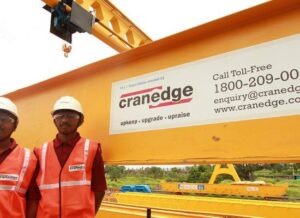5 Strategic Areas Facilities Managers Should Focus on (and updating Excel is not one of those)

Those following my posts here will know that I believe India’s facility management is set to become an essential part of today’s business landscape. Given that the manner in which we inhabit our workspaces is changing, facility managers today have to look for ways to optimize one of the most significant assets of an organization (of course, after their employees) and one of the largest sources of operations cost – the real estate. Their role is set to become much more strategic.
In today’s dynamic business environment, facility managers must look to do more than just update page after page of excel sheets with data. The aim of the facility manager of today has to be to manage facilities in a manner that it helps the organization achieve their operational objectives better and ultimately contributes to organizational performance. In this blog, we take a look at five strategic areas that facility managers should be focusing on –to cement their true place in the organization.
Sustainability management
Sustainability is more than a buzzword. Organizations across the globe are looking at avenues to reduce waste, reduce their carbon footprint, and identify ways to becoming more responsible. For example, for most organizations, energy is the second largest expense center. Facility managers thus should examine their energy management plan, carefully assess energy expenses, and identify avenues to reduce energy wastage. By taking a close look at their sustainability practices, such as energy management, waste management, water consumption, recycling, carbon footprint management etc. Facility Managers can then identify gaps that need to be bridged in order to create a workplace that has minimal wastage. This can deliver long‐lasting value to the organization and ultimately positively impact the organization’s bottom line.
Enhance service delivery leveraging data
Facility Managers also have the onus of supporting the performance of the employees of the organization. Hence, they have to look beyond just managing the buildings and assets and look for opportunities to support employee performance. Using data-driven intelligence to understand how employees are using the facilities, assessing information exchange and employee interactions and cross-organizational user behavior, Facility Managers can help identify avenues that support performance and help in attracting and retaining talent. Facility Managers also can look for opportunities to create tailored service delivery that is more fit-for-purpose and that supports the new modes of work that are emerging today.
Identify avenues to leverage technology
For many organizations, facility management has been done without much innovation. Facility Managers can identify ways of using technology to not only increase efficiencies of the employees but also improve their service offerings. Given that technology impacts not only how we work but also where we work, Facility Managers have to work towards building strategies that proactively respond to new workplace concepts such as the virtual workspace, shared workspaces, home offices, hot-desking etc. Additionally, Facility Managers have to look at cutting-edge technologies and strategies in facility management that help them with vital measurements and operational reporting, measuring service delivery, effectively enhancing lifecycle asset management, and driving resource utilization. This will help them improve customer service leveraging digital connectivity, and make the organization smarter and more productive.
Scenario Planning
Facility Managers of today have to get out of the comfort zone and look towards the future. They must create the bandwidth to gaze into their crystal balls and think of potential scenarios, a set of ‘what if’s?’, and have action plans in place for the same. Scenario planning includes forecasting the future facility requirements of the organizations. This can be considered as a stretch exercise for Facility Managers. This exercise helps in identifying situations that can have a significant business impact or have the potential to alter the course of business events. This can enhance the strategic impact of the role of the Facility Manager. By doing so, the Facility Manager is not constantly firefighting with the everyday uncertainties of facilities management. With strategic scenario planning, Facility Managers identify a framework that is required to allocate resources based on the priorities, milestones, and designed KPI’s and metrics.
Focus on proactive maintenance
Many organizations tend to employ a reactive strategy for maintaining their assets, property, machinery etc. Actions, in such cases, are based on registered complaints, malfunctions or troubles. Such an approach results in higher organizational costs owing to the downtime associated with these complaints and the associated productivity impact. Facility Managers must work on creating a more proactive facility management plan. They must work towards defining a framework that not only ensures that the assets are performing optimally at all times but also that the organization is future- ready. With proactive facilities management, Facility Managers can prevent malfunctions and better predict when certain systems, parts or equipment need to be replaced to reduce downtime, emergency stoppage costs, and productivity loss. Facilities Managers with the ambition today clearly have many avenues to make a strategic impact. However, in order to do so, they have to abandon the hours that they spend on manual Facilities Management with Excel. They must free up their headspace and look at the technology that helps them automate repeatable tasks. This will help them concentrate on discovering opportunities that increase enterprise-wide productivity and profitability. And it is this that will make the role of the Indian Facilities Manager truly strategic!







